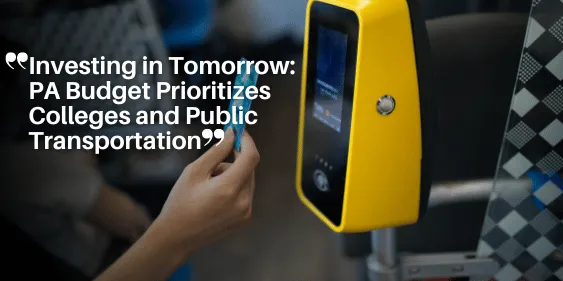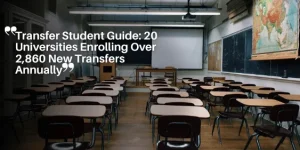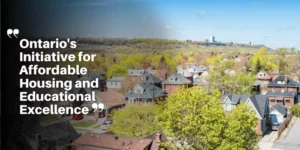Investing in Tomorrow: PA Budget Prioritizes Colleges and Public Transportation

As Pennsylvania stands on the threshold of a new fiscal year, the Commonwealth eagerly anticipates Governor Josh Shapiro’s budget proposal.
This comprehensive spending plan promises to do more than just balance the state’s books; it aims to act as a cornerstone for economic growth and social progress.
Two focal points of the proposal—higher education and public transportation—are designed to create a ripple effect that will touch the lives of Pennsylvanians from all walks of life.
Commitment to Economic Growth
Governor Shapiro is preparing to make a substantial investment in higher education.
Improving accessibility and affordability for students across the state, the proposed funding will enhance the quality of education and research capabilities. The goal is to prepare a workforce that can meet the demands of a competitive job market, thus attracting businesses that fuel economic growth.
Shapiro aims to channel resources effectively to ensure that the state’s educational institutions remain competitive.
By driving funds into these areas, Pennsylvania hopes to create an environment where innovation thrives and opportunities abound.
Emphasis on Public Transportation
Public transit takes center stage in this proposal, with significant resources allocated to address the operational challenges faced by transit agencies.
The focus will be on promoting sustainable urban living, improving daily commutes, and reducing environmental impact. Enhanced public transit systems not only ease commutes but also contribute to the broader goal of creating environmentally friendly urban centers.
Investing in public transit is about more than just upgrading systems; it’s about making a lasting impact on the quality of life for residents.
By fostering eco-friendly transit options, Pennsylvania takes a forward step toward sustainable development.
Governor Shapiro’s budget proposal underscores a commitment to vital sectors that shape the future of Pennsylvania, aiming for a more prosperous and equitable Commonwealth.
Investing in Higher Education
A key focus of Governor Josh Shapiro’s forthcoming budget proposal is the enhancement of higher education in Pennsylvania.
This initiative aims to make college more accessible and affordable, thereby nurturing a more knowledgeable and skilled workforce that can drive economic growth.
Enhancing Accessibility and Affordability
Increasing funding for higher education is crucial to breaking down financial barriers that prevent many students from pursuing college degrees. With the proposed budget, more scholarships will be available, and tuition costs are expected to decrease.
This means students from diverse backgrounds will have a better chance of obtaining quality education without accruing significant debt.
Improving Quality of Education and Research
Investment in higher education doesn’t stop at making it accessible; it also focuses on improving the quality of education and research capabilities. By attracting top-tier faculty and modernizing educational infrastructure, Pennsylvania aims to set a high standard for academic excellence.
Furthermore, additional funding will bolster research initiatives that can lead to technological advancements, benefiting both the state and the larger scientific community.
Strengthening Workforce Readiness and Attracting Businesses
Another critical aspect of this investment is preparing students for a competitive job market.
Enhanced educational quality ensures that graduates are well-equipped with relevant skills, making them attractive to top-tier employers.
As a result, businesses seeking a knowledgeable workforce are more likely to set up operations in Pennsylvania, thereby boosting the state’s economic prospects. This investment will ultimately create a positive feedback loop of job creation, economic stability, and community development.
By committing to these educational enhancements, Governor Shapiro’s budget proposal aims not only to uplift individual students but also to strengthen the state’s overall economic health.
Next, the chapter will delve into revitalizing public transit, which is another significant focus of the budget proposal.
Revitalizing Public Transit
Public transit often seems a daunting infrastructure to modernize, but Governor Josh Shapiro’s budget proposal positions it as a critical leverage point for Pennsylvania’s growth.
By addressing operational challenges and striving for a sustainable urban environment, these investments promise to bring lasting benefits.
Addressing Operational Challenges
Many of Pennsylvania’s transit agencies face hurdles such as outdated equipment and limited routes. The proposed funding surge aims to:
- Improve systems and expand routes, connecting more communities.
- Modernize fare collection methods, making the experience smoother for daily commuters.
- Upgrade tracks and vehicles, ensuring safer and more reliable service.
These enhancements can break down existing barriers, helping transit agencies operate more efficiently while serving more residents effectively.
Promoting Sustainable Urban Living
Investing in public transit is not just about getting people from point A to point B. It is an integral part of promoting sustainable urban living. Efficient transit systems reduce carbon emissions by cutting down the number of cars on the road. This shift can lead to:
- Lower air pollution levels, contributing to better public health.
- Reduced greenhouse gas emissions, supporting environmental goals.
- Creation of green jobs, adding economic benefits to the environmental ones.
Such improvements align with eco-friendly urban planning, fostering communities that live in harmony with their environment.
Improving Services and Daily Commutes
Better public transit services translate to improved daily commutes, enhancing the quality of life for Pennsylvanians. Enhancements could include:
- More frequent and timely services, reducing wait times and the stress of commuting.
- Safe and clean transit stations equipped with modern accessibility features.
- Reliable and efficient routes that cater to a broader range of needs, from urban centers to more isolated communities.
By facilitating smoother daily commutes, the state ensures its residents can transition easily between home, work, and leisure activities, boosting overall productivity and well-being.
Looking ahead, it’s clear that the revitalization of public transit can lay a solid foundation for sustainable urban living and economic growth. These investments ripple outwards, affecting not just transit, but also environmental goals and community health.
Investments in public transit support broader goals and enhance daily life for all Pennsylvanians.
Supporting Underfunded Public Schools
Channeling Resources to Institutions in Need
Educational inequality in Pennsylvania remains a pressing issue, particularly in underfunded public schools.
To address this, Governor Shapiro’s budget proposes targeted financial allocations aimed at leveling the playing field.
By focusing on schools that lack essential resources, the plan seeks to improve the quality of education and foster equity among students.
This concentrated effort will ensure that institutions in dire need receive the support necessary to uplift their educational standards.
Fostering Educational Equity and Improving Student Outcomes
Underfunded schools struggle with disparities that affect teaching quality and student opportunities.
These inequities create significant gaps in academic achievement and long-term outcomes.
Governor Shapiro’s budget aims to mitigate these disparities by providing additional funds for vital resources like updated materials, technology, and infrastructure improvements.
Moreover, investing in teacher development and support programs will enhance the educational environment, helping every student reach their full potential.
By addressing these critical needs, the budget not only aims to boost graduation rates but also to produce more college-ready and career-ready graduates.
Enhanced educational support translates into better life prospects for students, laying a stronger foundation for their future success and contributions to society.
Addressing Long-Term Societal and Economic Impacts
The ramifications of underfunded education extend far beyond the classroom. Schools that lack adequate resources often perpetuate cycles of poverty and limit social mobility.
Governor Shapiro’s budget acknowledges these broader societal impacts and seeks to break this cycle through strategic investment in public education.
By channeling resources to the most underfunded schools, the budget initiative endeavors to create a ripple effect that benefits both the community and the broader economy.
Well-funded schools can produce a more skilled workforce, drawing businesses and fostering economic growth.
Additionally, improving educational equity helps to promote social cohesion and reduce disparities that can lead to societal unrest.
Investing in Pennsylvania’s educational infrastructure is not merely about short-term improvements but about cultivating a prosperous, equitable future.
The focus on underfunded public schools underscores a commitment to systemic change that benefits all Pennsylvanians.
Economic Development and Business Attraction
To drive economic development and attract businesses, Governor Josh Shapiro’s budget prioritizes significant investments in infrastructure and workforce development.
This proactive approach aims to create a robust economic environment that can attract major companies while nurturing local businesses.
Investing in Infrastructure and Workforce Development
Strong infrastructure and a talented workforce are critical for economic growth. Governor Shapiro’s budget proposes substantial funds to improve roads, bridges, and public utilities, making Pennsylvania an appealing destination for business investments.
Enhanced infrastructure not only facilitates smoother logistics and operations but also makes the state more attractive to major corporations looking to establish or expand their presence.
At the same time, the budget underscores the importance of workforce development.
By investing in education and vocational training programs, Pennsylvania can cultivate a skilled and adaptable labor force.
This, in turn, supports businesses by ensuring they have access to capable employees, which is a significant factor in company location decisions.
Attracting Major Companies to Pennsylvania
A business-friendly environment is vital for attracting large companies.
Governor Shapiro’s budget includes incentives such as tax breaks, grants, and streamlined regulatory processes to lure significant businesses to the state. These measures are designed to boost job creation and stimulate local economies.
By promoting an attractive business climate, Pennsylvania stands to benefit from increased corporate investments and the economic momentum that follows.
Balancing Support for Local Businesses and Larger Corporations
While drawing major companies is essential, supporting local businesses remains a priority.
The budget aims to strike a balance by offering financial aid, training, and resources to small and medium-sized enterprises (SMEs).
These initiatives ensure that local businesses can thrive and compete alongside larger corporations.
By fostering a vibrant local business ecosystem, the budget helps sustain community economic health and resilience.
Governor Shapiro’s budget sets the groundwork for a dynamic and balanced economic landscape in Pennsylvania, positioning the state as both a magnet for major corporations and a nurturing ground for local businesses.
Through such strategic investments, Pennsylvania is poised to create a prosperous economic future that benefits all its residents.
Addressing Controversial Issues: Private School Vouchers
Revisiting the Private School Voucher Program
Private school vouchers are at the heart of a contentious debate in Pennsylvania.
These vouchers, which allow public funding to pay for students to attend private schools, are seen by some as a means of providing greater school choice.
However, there are significant concerns about their impact on public education funding and equity.
Debate Over Impact on Public Education Funding and Equity
Arguments for Vouchers
Proponents of the voucher program argue that it enables parental choice and fosters competition among schools.
This competition, they believe, will improve the overall quality of education.
Supporters also claim that voucher programs can save taxpayer money and provide better educational outcomes for students. According to some data, students utilizing vouchers often outperform their public school counterparts.
Arguments Against Vouchers
Critics, however, caution that private school vouchers drain resources from public schools, exacerbating funding problems.
This diversion of funds can lead to increased segregation and a lack of accountability, as private schools are not held to the same standards as public institutions.
Opponents worry about the use of public funds for private education and the negative repercussions on educational equity.
Contrasting Perspectives on School Choice
While the concept of school choice is appealing to many, it sparks contrasting views on its implications.
Advocates highlight the freedom for parents to choose the best educational environment for their children.
Opponents point out that this choice often comes at a high cost to public school systems, which are already struggling to provide quality education to all students.
As we navigate this complex issue, it is crucial to weigh both sides carefully. The debate over private school vouchers is far from settled, and future discussions will continue to shape Pennsylvania’s educational landscape.
These controversial issues pave the way for broader conversations about Pennsylvania’s budget priorities.






